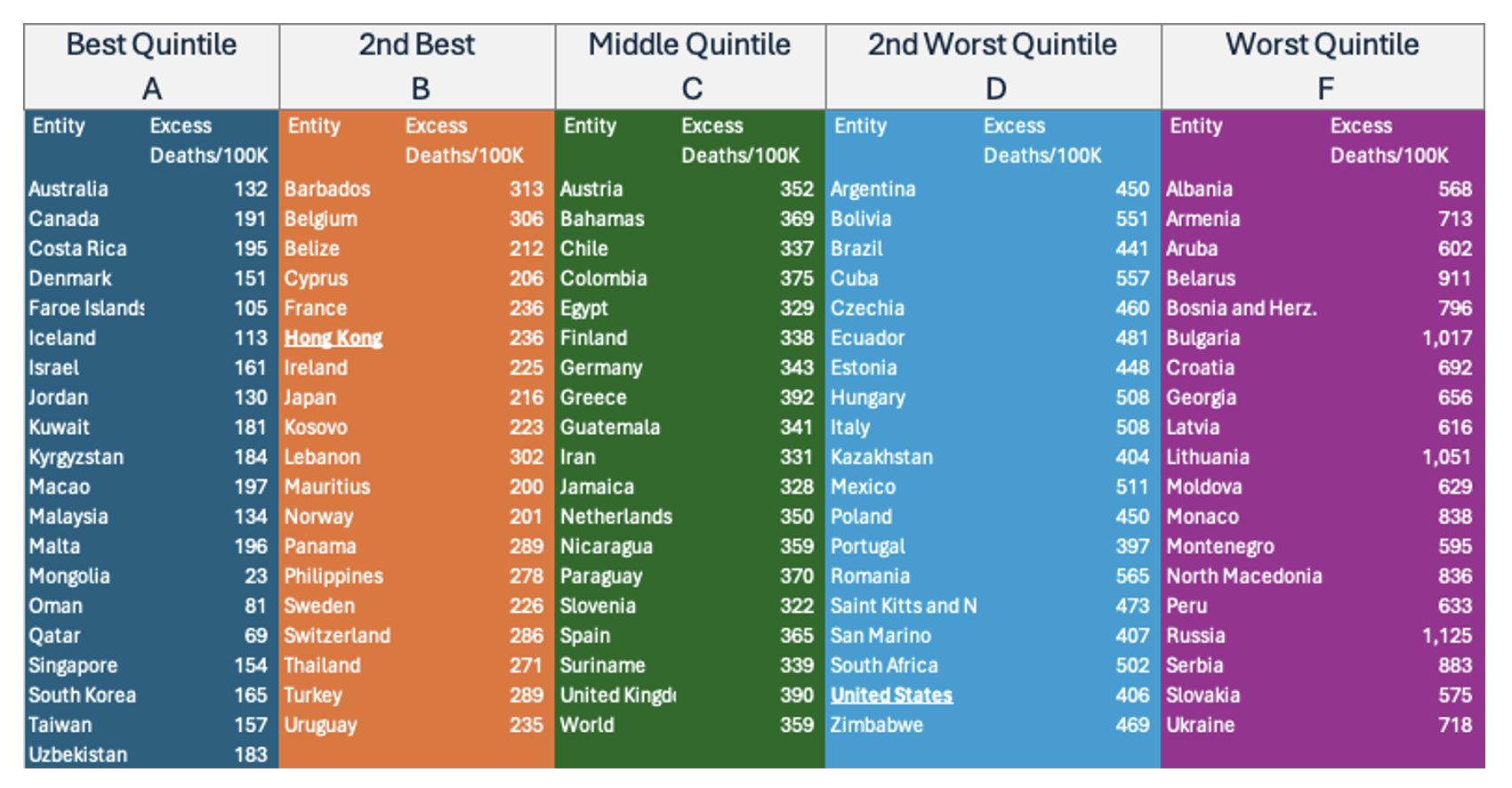Final Score on Who Handled COVID-19 Best

There is no perfect way to measure which government did best in managing the COVID-19 pandemic. But with 48 full months of data from January 20, 2020 to January 27, it is now possible to score which area did best across the whole marathon. For example, Hong Kong was an early sprinter getting an A+ and then faltering in vaccinating seniors and withstanding Omicron variant. Other jurisdictions fumbled the exit ramp from Zero Covid-type policies to opening their economies. Because testing rates varied, a measure like COVID cases, hospitalizations, or deaths could cover up a lot of hidden illness and deaths in places that could not or did not test as much as others. This post uses Cumulative Excess Mortality numbers drawn from Our World In Data (OWID) which were drawn from The Economist . OWID published data for all jurisdictions regardless of how good the estimates were. I advise against making distinc...
